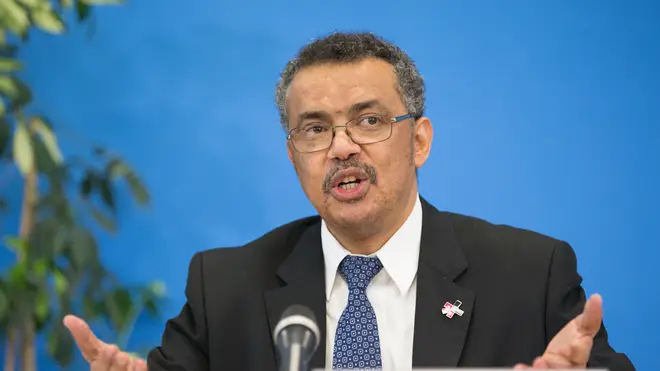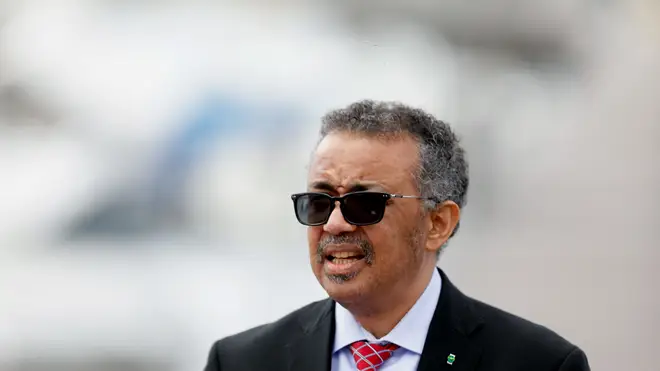
Ian Payne 4am - 7am
18 August 2020, 21:20

All nations need to work together to access a vaccine for Covid-19 because "no-one is safe until everyone is safe", the World Health Organisation (WHO) chief has said.
Director-general Tedros Adhanom Ghebreyesus warned against countries individually seeking to secure vaccines for their own citizens during the pandemic.
Collectively, the planet has now recorded almost 22 million cases of Covid-19, and over 776,000 deaths.
He told a WHO press briefing that the response to this pandemic "has to be collective" and "we need to prevent vaccine nationalism".
Working together could help prevent countries from repeating the same mistakes as new diagnostics, medicines and vaccines come through the pipeline, he suggested.
Dr Tedros said: "This is not charity, we have learned the hard way that the fastest way to end this pandemic and to reopen economies is to start by protecting the highest risk populations everywhere, rather than the entire populations of just some countries.

"Sharing finite supplies strategically and globally is actually in each country's national interest.
"No-one is safe until everyone is safe."
He pointed out that no one country has access to research and development, manufacturing and all the supply chain for all essential medicines and materials.
The WHO has been working on a guide since May, so there is fair global access to diagnostics, therapeutics and vaccines.
It suggests that vaccines, when they become available, are rolled out in two phases.
Doses should be "allocated proportionally" and "simultaneously" to all participating countries to help cut overall risk.
For most countries, the aim would be for this allocation to build up to 20% of the population and cover most of the at-risk groups.

Boris Johnson: Coronavirus crisis highlights benefits of Union
Then "consideration will be given to countries in relation to threat and vulnerability", Dr Tedros said.
He added: "Frontline workers in health and social care settings are prioritised as they are essential to treat and protect the population and come in close contact with high-mortality risk groups.
"If we don't protect these highest-risk people from the virus everywhere and at the same time, we can't stabilise health systems and rebuild the global economy.
"This is what the first crucial phase of the vaccine allocation mechanism aims to do.
"We are all so interconnected."